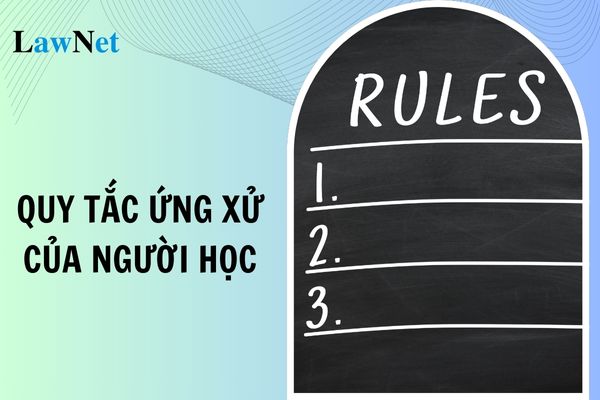What are latest regulations on Code of Conduct for students in the general education institutions in Vietnam?
What are latest regulations on Code of Conduct for students in the general education institutions in Vietnam?
Pursuant to Article 8 of Circular 06/2019/TT-BGDĐT, the Code of Conduct for students in general education institutions is stipulated as follows:
(1) Interaction with administrators, teachers, and staff: Be respectful, polite, honest, and sharing; comply with the requirements and regulations. Do not fabricate information; do not belittle, humiliate, offend, or engage in violence.
(2) Interaction with other students: Use appropriate, friendly, honest, cooperative, and helpful language while respecting differences. Do not use vulgar language, insult, belittle, provoke disunity; do not fabricate information, incite others; do not spread information to defame or harm the honor and dignity of other students.
(3) Interaction with parents and relatives: Be respectful, polite, honest, and loving.
(4) Interaction with visitors at the educational institution: Be respectful and polite.

What are latest regulations on Code of Conduct for students in the general education institutions in Vietnam? (Image from the Internet)
What are duties and rights of students in general education institutions in Vietnam?
According to Article 82 of the Education Law 2019, the duties of students in general education institutions are defined as follows:
(1) Study and train according to the educational program, educational plans, and codes of conduct of the institution.
(2) Respect educators, staff, and employees of the educational institution; unite and help each other in learning and training; comply with the internal rules, charters, and regulations of the institution; abide by the laws.
(3) Participate in labor and social activities, environmental protection activities suitable to their age, health, and capability.
(4) Preserve and protect the property of the educational institution.
(5) Contribute to building, protecting, and promoting the traditions of the educational institution.
According to Article 83 of the Education Law 2019, the rights of students in general education institutions are defined as follows:
(1) Receive education and study to develop comprehensively and maximize their potential.
(2) Be respected; have equal opportunities to access education and study; develop talents, creativity, and inventions; be provided with sufficient information about their learning and training.
(3) Accelerate learning, shorten the program duration, study at an older age than the stipulated, prolong the study period, retake classes, and be facilitated to study the educational programs as prescribed by law.
(4) Study in a safe and healthy educational environment.
(5) Be granted degrees, certificates, and confirmations after graduation from a level of education, training level, and completion of the educational program as prescribed.
(6) Participate in activities of mass organizations and social organizations within the educational institution as prescribed by law.
(7) Utilize the facilities, libraries, equipment, and means to support learning, cultural, physical, and sports activities of the educational institution.
(8) Make direct suggestions or through their legal representatives to the educational institution regarding solutions to improve the institution and protect the rights and interests of students.
(9) Benefit from the state's priority policies in recruitment into state agencies if they graduate with excellent results and have good ethics.
(10) Delegate representatives to participate in the school council as prescribed.
What are admission policies for students in Vietnam?
According to Article 87 of the Education Law 2019, the admission policies for students are outlined as follows:
- The state implements admission policies for enrollment into intermediate, college, and university levels for students who are ethnic minorities with very few members; students who are ethnic minorities in areas with particularly difficult socio-economic conditions where there are no or very few ethnic minority officials and public employees; has policies to create sources for admission, facilitating the admission of these groups into boarding schools for ethnic minorities and extending the pre-university duration.
- The provincial-level People's Committee, based on local needs, proposes and allocates the admission quota; nominates students for learning according to approved standards and quotas; and arranges jobs for students after graduation.
Educational institutions are responsible for supporting students under admission policies to ensure the quality of their outcomes.
- Students under admission policies must return to work in their localities where they were nominated for learning; they are recruited and arranged for jobs.
- The Government of Vietnam details the standards and subjects eligible for admission policies; the organization of implementing admission policies and the recruitment of students under admission policies after graduation.

